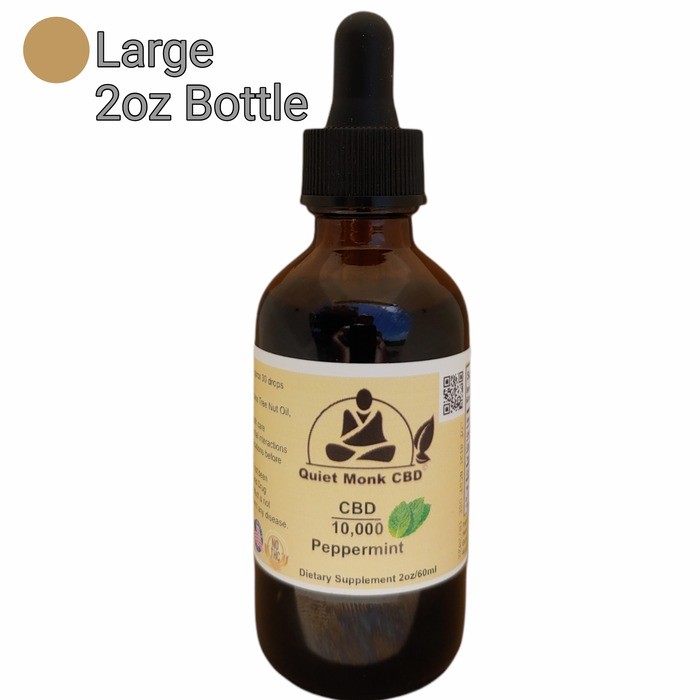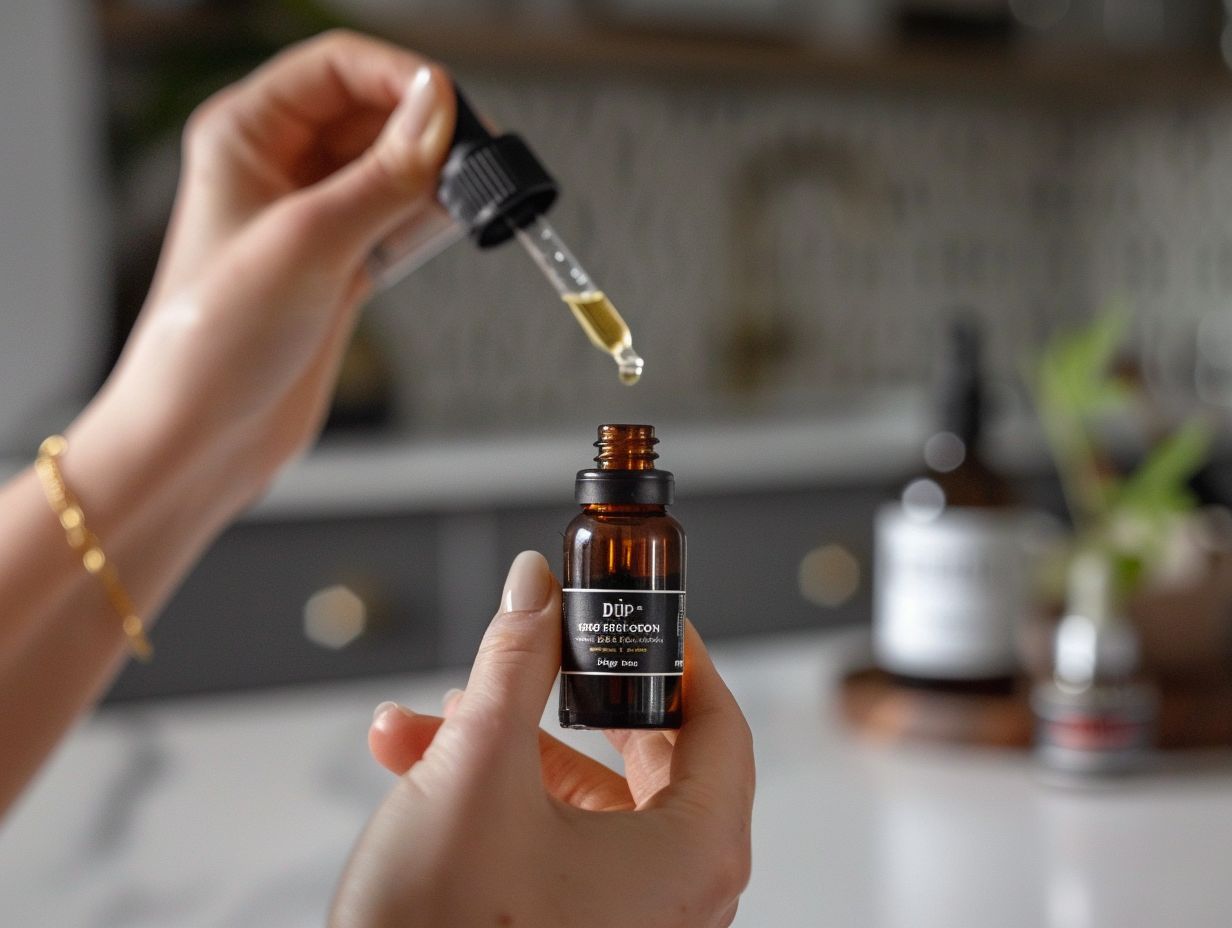
Curious about CBD oil? Interested in how it’s made and the different ways it can be utilized? From sublingual and topical applications to inhalation, edibles, and capsules, there are various options worth exploring.
Wondering what the best method is for using CBD oil? It’s essential to consider factors such as convenience, effectiveness, and personal preferences. Dive into the benefits of CBD oil, potential risks or side effects, and gain insights on how to select the right product for your needs.
Explore recommended dosages and the timeframe required for CBD oil to take effect.
What is CBD Oil?
CBD oil, which is derived from the cannabis plant, has become a popular natural and organic supplement known for its potential health and wellness benefits. This plant-based product is extracted from the hemp variety of the cannabis plant, which is recognized for its high CBD content and low THC levels, thus making it non-psychoactive.
Because of its organic nature, CBD oil is often favored by individuals seeking a holistic approach to their well-being. With the increasing focus on natural remedies, CBD oil is gaining traction in the health and wellness sector as more individuals explore its potential therapeutic properties. Its purity and absence of synthetic additives resonate with consumers looking for clean and sustainable wellness solutions.
How is CBD Oil Made?
CBD oil is obtained from the cannabis plant through various techniques, like CO2 extraction or solvent extraction, to guarantee top-notch quality and purity.
CO2 extraction stands out as a favored method for deriving CBD oil, thanks to its ability to maintain the purity of the compounds without leaving behind any harmful residues. This technique involves utilizing carbon dioxide under high pressure and low temperatures to draw out the beneficial cannabinoids from the plant material. The outcome is a pristine and potent CBD oil that lacks impurities. Quality control plays a crucial role in the extraction process to uphold the oil’s integrity and ensure its efficacy for individuals seeking natural remedies.
What are the Different Ways to Use CBD Oil?
CBD oil can be consumed in various ways, offering users a range of benefits and preferences. Sublingual application involves placing a few drops under the tongue for quick absorption, making it popular for those seeking fast relief. Conversely, topical creams are applied directly to the skin, making them ideal for targeting specific areas of discomfort. Inhalation, such as vaping, allows for a rapid onset of effects that many users find appealing. CBD edibles, like gummies or chocolates, provide a discreet and convenient way to consume CBD, especially for those who prefer a tastier option. Capsules offer a precise and easy method to incorporate CBD into a daily routine, favored by users seeking a convenient consumption approach.
1. Sublingual
The sublingual administration of CBD oil involves placing drops under the tongue for effective absorption into the bloodstream, making it a popular method due to its quick onset and high bioavailability.
This method of consuming CBD oil is particularly favored for its ability to bypass the digestive system, allowing for a faster onset of effects compared to oral ingestion. The high bioavailability of this method means that a larger proportion of the CBD is absorbed into the bloodstream, enhancing its effectiveness.
To determine the proper dosage, it is recommended to start with a low amount of CBD oil, typically a few drops, and gradually increase until the desired effects are achieved. Proper administration involves holding the oil under the tongue for about 60-90 seconds before swallowing for optimal absorption.
2. Topical
The application of CBD oil topically involves directly administering it onto the skin. This method allows for localized effects and absorption, which is particularly useful for targeting specific areas of discomfort or inflammation.
When CBD oil is applied topically, it can interact with the body’s endocannabinoid system and the peripheral cannabinoid receptors found in the skin. This interaction leads to targeted relief at the site of application. The skin’s ability to absorb cannabinoids facilitates more efficient delivery to the affected area, bypassing the digestive system and entering the bloodstream directly.
Certain terpenes present in CBD oil, such as linalool or myrcene, can enhance the therapeutic properties of the oil. These terpenes complement CBD’s potential benefits for reducing pain, inflammation, and promoting overall skin health.
3. Inhalation
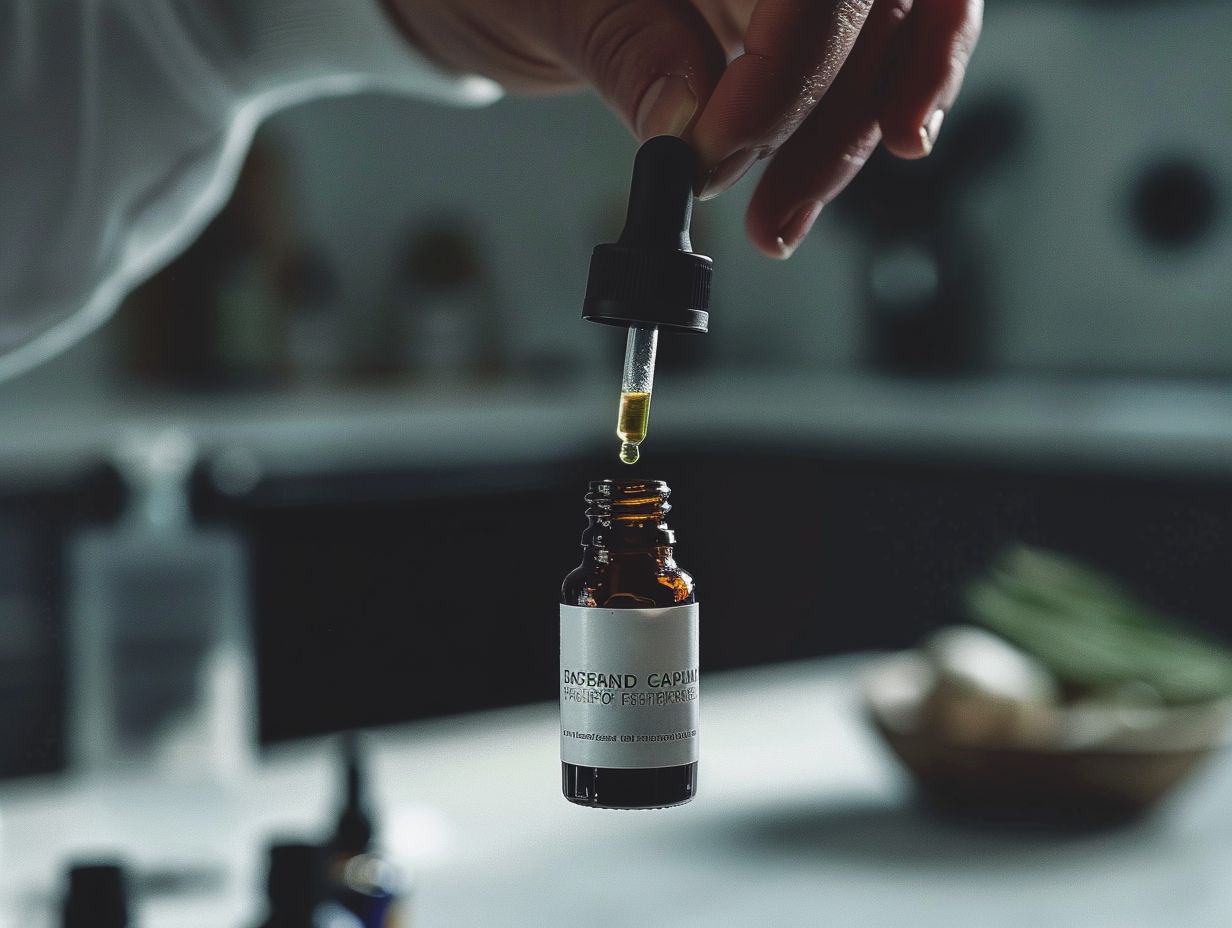
The inhalation of CBD oil through vaping offers a means of rapid absorption of cannabinoids into the bloodstream, providing a quick and efficient way to experience the benefits of full-spectrum CBD.
When CBD oil is vaporized and inhaled, it circumvents the digestive system by entering the bloodstream through the lungs. This inhalation method is renowned for its high bioavailability, ensuring that a substantial amount of CBD is absorbed into the body.
Full-spectrum CBD comprises a variety of cannabinoids, terpenes, and other beneficial compounds that work together synergistically to amplify the overall therapeutic effects. Vaping CBD oil is preferred by many individuals due to its fast-acting properties, making it an excellent choice for those in search of immediate relief or relaxation.
4. Edibles
Edibles infused with CBD oil offer a convenient and discreet way to consume CBD, providing precise dosage control along with the added benefits of carrier oils used in their preparation. These edibles, which come in various forms such as gummies and baked goods, offer users a delicious and practical way to include CBD in their daily routines.
The appeal of edibles lies in their ability to seamlessly blend into any environment without attracting unwanted attention. By allowing individuals to regulate the exact amount of CBD they consume, edibles enable users to customize their intake according to their unique requirements. Moreover, the carrier oils utilized in these edibles play a pivotal role in improving the bioavailability of CBD, ensuring optimal effectiveness for users.
5. Capsules
CBD oil capsules offer a straightforward and reliable method of CBD consumption, providing precise dosing and convenient administration, which has made them a popular choice among those seeking ease of use.
The capsules come pre-measured with a specific CBD concentration, ensuring consistent and accurate dosing with each intake. This eliminates the hassle of measuring liquid drops or dealing with messy tinctures. Users can easily monitor their CBD intake and adjust their dosages accordingly. This approach is especially advantageous for individuals new to CBD or looking for a convenient way to include it in their daily regimen. The efficacy of capsules lies in their ability to deliver a controlled CBD amount each time, facilitating a more regulated and controlled consumption experience.
What is the Best Way to Use CBD Oil?
The optimal usage of CBD oil varies based on individual preferences and desired outcomes, influenced by factors such as consumption method, dosage, and absorption rates.
Regarding consumption methods, individuals can choose between sublingual ingestion, topical application, or edibles, each impacting the body’s absorption and utilization of CBD differently.
Dosage is a critical factor, as some individuals may prefer lower doses for subtle effects, while others may opt for higher concentrations to achieve more pronounced results.
Understanding absorption rates is crucial, as variables like body weight, metabolism, and product quality can affect the speed at which CBD enters the bloodstream and provides its potential benefits.
Factors to Consider
When considering the best way to utilize CBD oil, it is important to take into account factors such as your health conditions, the recommended dosage, and the availability of dosage calculators to ensure the proper and effective use of the product.
CBD oil dosage is not a one-size-fits-all solution; it varies depending on individual factors such as weight, metabolism, and the severity of health conditions. Seeking advice from a healthcare professional can offer valuable insights into the optimal dosage tailored to your specific needs. The utilization of dosage calculators can streamline this process, aiding in maintaining consistency in your CBD oil intake.
Precise dosage is essential in achieving the desired effects, whether it be for pain management, stress relief, or improved sleep quality. Investing the time to calculate and monitor your CBD oil dosage can result in a more positive experience and improved outcomes overall.
What are the Benefits of Using CBD Oil?
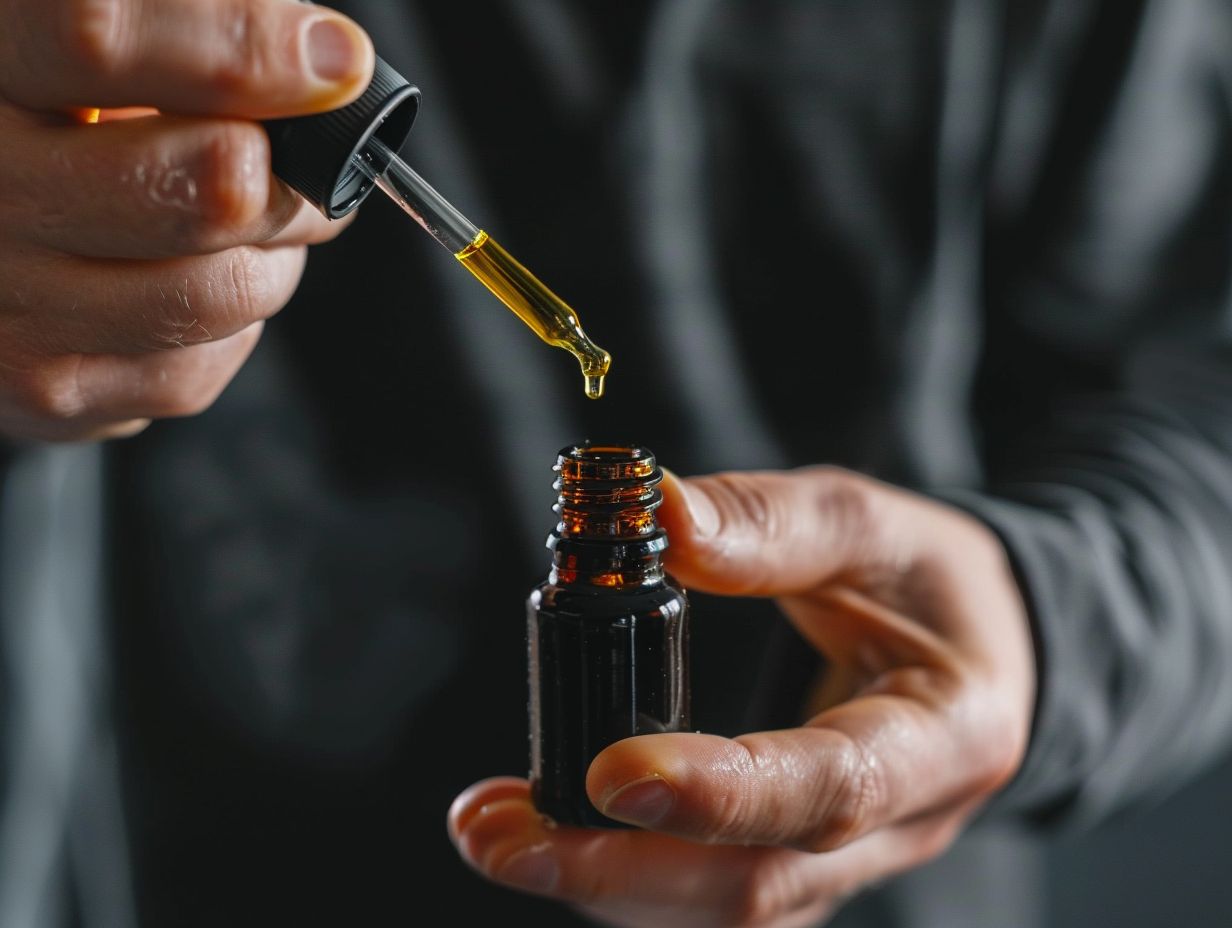
The utilization of CBD oil can provide a range of benefits for general health and well-being, serving as a natural solution for addressing issues such as anxiety, pain, inflammation, and stress.
CBD oil has become well-liked for its potential in easing symptoms related to anxiety and stress. Research indicates that CBD oil has the potential to alleviate pain and inflammation owing to its anti-inflammatory properties. By including CBD oil in your wellness regimen, you may notice improvements in your sleep patterns, better regulation of mood, and an overall enhanced sense of well-being. This natural remedy presents a comprehensive approach to maintaining health without the negative side effects often associated with traditional medications.
Are There Any Risks or Side Effects of Using CBD Oil?
While CBD oil is generally well-tolerated, some individuals may experience side effects such as dry mouth, dizziness, or changes in appetite, especially when used alongside specific medications or health conditions.
It is crucial to understand the potential risks and side effects linked to the use of CBD oil, as they can vary from person to person. In certain instances, CBD oil may interact with other medications, impacting their efficacy or triggering unexpected reactions. Individuals with underlying health conditions like liver disease or low blood pressure should exercise caution when using CBD oil, as it has the potential to worsen these conditions.
Seeking advice from a healthcare professional before integrating CBD oil into your routine is essential to ensure its safety and appropriateness for your individual requirements.
How to Choose the Right CBD Oil for You?
When you’re in the market for CBD oil, it’s important to take into account various factors to ensure you’re getting a safe and effective product that suits your specific needs.
Ensuring the quality of the CBD oil you choose is paramount, as it directly influences the product’s effectiveness. Seek out oils that are derived from organic hemp plants and have undergone thorough third-party testing to verify their purity. The potency of the oil, which is typically denoted by the concentration of CBD, is another critical consideration. Look for products with clearly labeled CBD content per serving. Additionally, pay close attention to the extraction process used. CO2 extraction is widely regarded as the best method, as it retains the most beneficial compounds without resorting to harmful solvents. By carefully considering these factors, you can confidently select a CBD oil that meets your needs.
What is the Recommended Dosage for CBD Oil?
The optimal dosage of CBD oil can differ depending on factors such as body weight, health status, and desired outcomes. Generally, it is recommended to start with a low dose and gradually increase it until the desired effects are attained.
It is essential to recognize that responses to CBD can vary from person to person. Hence, seeking advice from a healthcare professional for personalized dosage suggestions is advisable. Elements like metabolism, tolerance levels, and the method of intake can influence the absorption of CBD in the body.
Consuming CBD oil with food can enhance its absorption, thereby increasing its bioavailability. Always adhere to the dosage instructions provided by the manufacturer and be mindful of any potential interactions with other medications or health conditions.
How Long Does it Take for CBD Oil to Work?
The timing of CBD oil’s effects can vary depending on the method of consumption, individual metabolism, and dosage. Typically, effects are felt within 15-60 minutes when taken sublingually, and it may take longer if ingested through edibles.
When CBD oil is administered sublingually, it can bypass the digestive system and enter the bloodstream more swiftly, resulting in quicker effects. Conversely, when ingested as edibles, the onset of effects might be delayed as the oil needs to pass through the digestive tract before absorption occurs. Various factors such as body weight, tolerance levels, and overall health can also play a role in how rapidly CBD oil takes effect. It is essential for users to comprehend their own metabolism and dosing regimen to optimize the benefits of CBD.
Frequently Asked Questions
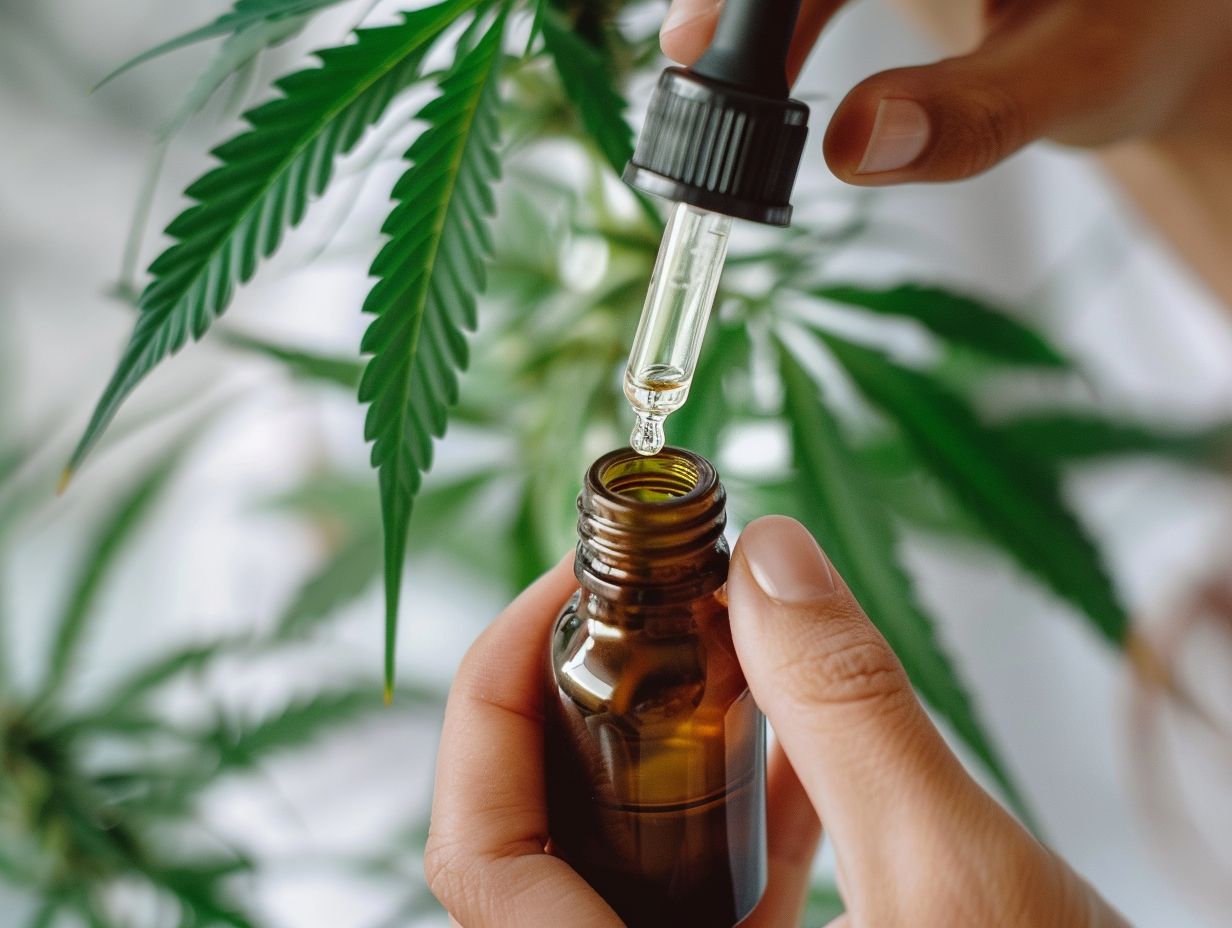
What is the best way to use CBD oil?
The best way to use CBD oil is to start with a low dosage and gradually increase until you feel the desired effects. It is also important to consult with a healthcare professional before starting to use CBD oil.
Can I mix CBD oil with other products?
Yes, you can mix CBD oil with other products such as lotions, creams, and even food and drinks. However, make sure to check the dosage and consult with a healthcare professional before mixing CBD oil with any other product.
How should I store CBD oil?
CBD oil should be stored in a cool, dark place away from direct sunlight. It is also recommended to keep it in an airtight container to prevent exposure to air and maintain its potency.
What is the recommended dosage for CBD oil?
The recommended dosage for CBD oil varies depending on factors such as body weight, health condition, and tolerance level. It is best to start with a low dosage and gradually increase until you feel the desired effects.
Can I use CBD oil for my pets?
Yes, CBD oil can be used for pets such as dogs and cats. However, it is important to use a pet-specific CBD oil and consult with a veterinarian before giving it to your pet.
Are there any side effects of using CBD oil?
Some people may experience side effects such as dry mouth, drowsiness, and changes in appetite when using CBD oil. It is important to start with a low dosage and monitor your body’s reaction to determine the appropriate dosage for you.

